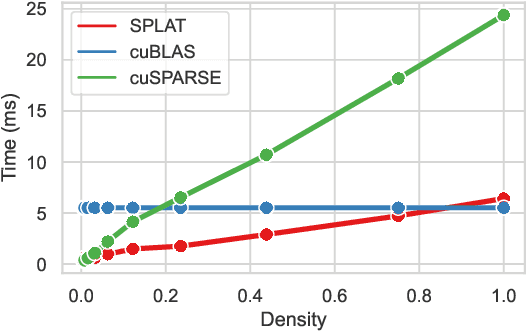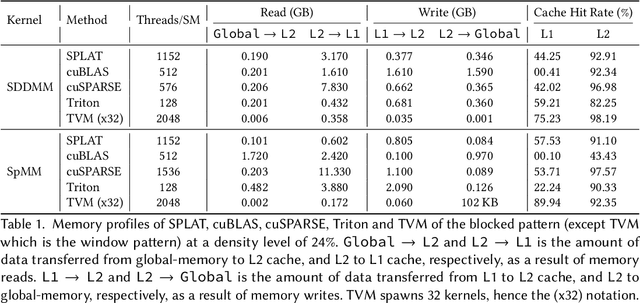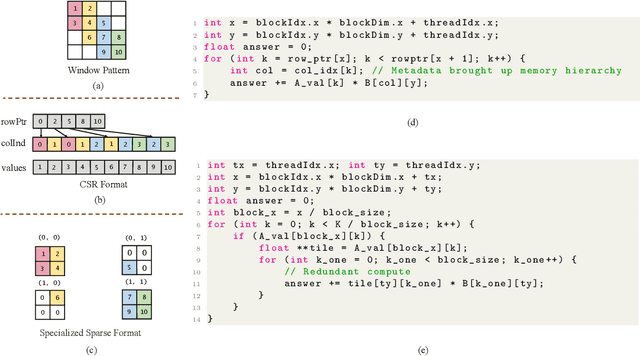Yuhao Ge
SPLAT: A framework for optimised GPU code-generation for SParse reguLar ATtention
Jul 23, 2024



Abstract:Multi-head-self-attention (MHSA) mechanisms achieve state-of-the-art (SOTA) performance across natural language processing and vision tasks. However, their quadratic dependence on sequence lengths has bottlenecked inference speeds. To circumvent this bottleneck, researchers have proposed various sparse-MHSA models, where a subset of full attention is computed. Despite their promise, current sparse libraries and compilers do not support high-performance implementations for diverse sparse-MHSA patterns due to the underlying sparse formats they operate on. These formats, which are typically designed for high-performance & scientific computing applications, are either curated for extreme amounts of random sparsity (<1% non-zero values), or specific sparsity patterns. However, the sparsity patterns in sparse-MHSA are moderately sparse (10-50% non-zero values) and varied, resulting in existing sparse-formats trading off generality for performance. We bridge this gap, achieving both generality and performance, by proposing a novel sparse format: affine-compressed-sparse-row (ACSR) and supporting code-generation scheme, SPLAT, that generates high-performance implementations for diverse sparse-MHSA patterns on GPUs. Core to our proposed format and code generation algorithm is the observation that common sparse-MHSA patterns have uniquely regular geometric properties. These properties, which can be analyzed just-in-time, expose novel optimizations and tiling strategies that SPLAT exploits to generate high-performance implementations for diverse patterns. To demonstrate SPLAT's efficacy, we use it to generate code for various sparse-MHSA models, achieving geomean speedups of 2.05x and 4.05x over hand-written kernels written in triton and TVM respectively on A100 GPUs. Moreover, its interfaces are intuitive and easy to use with existing implementations of MHSA in JAX.
 Add to Chrome
Add to Chrome Add to Firefox
Add to Firefox Add to Edge
Add to Edge